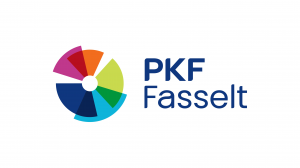Call for applications: 6 PhD Students
Profile
-
Master degree in Biology, Medical Biology, Molecular Biology, Computer Science, Data Science, Mathematics, or related -
Excellent skills and/or practical experience in one or more of the following research areas: cell biology, immunology, microbiology/infection biology, bioanalytics and microscopy, computer vision, machine learning, topological data analysis (TDA) -
You have excellent communication skills in spoken and written English -
Willingness to work both independently as well as in a team -
Skills suitable for one of the PhD theses mentioned below -
Willingness to engage in scientific writing -
Ability to think "out-of-the-box" -
Excellent networking skills -
Ideally, experience in performing and disseminating small research projects
Topics of the PhD theses:
-
Thesis 1: Meisner-Kober Lab: AI-enabled quantitative imaging assays for cellular trafficking of extracellular vesicles from the whole organ to the subcellular level: In this project, we will develop innovative imaging assays and analysis tools using AI to characterize cellular trafficking and intercellular communication by extracellular vesicles, to find converging mechanisms with viral and bacterial particles and guide future therapeutic RNA delivery. -
Thesis 2: Wessler Lab: Tracking of the bacterial class-I carcinogen Helicobacter pylori across the polarized gastric epithelium: The aim of the project is the establishment and optimization of unbiased readout assays to quantitate transmigrating bacterial pathogens into deeper regions of the stomach where therapeutic treatments are difficult. In this project, stem cell-derived gastric organoids are used as an advanced infection model, in which defined receptors are investigated by state-of- the art methods in cell biology (organoids, mucosoids, confocal laser scanning microscopy, STED, etc.), molecular biology (CRISPR/cas, RNA Seq, ATAC Seq, etc), and infection biology (vesicles, transwell filter assays, Cfu, etc.). -
Thesis 3: Oostingh Lab: Development of novel diagnostic tools to monitor cellular immune responses. In the scope of this project, we aim at developing novel tools to perform stain-free analysis of cells, for example to determine virus-specific immune responses or wound healing. Methods applied are cell culture, advanced microscopy, molecular biology (real time PCR, PCR) and immunological methods. -
Thesis 4: AG Uhl: Coping with weakly labelled training data. The aim of this thesis is to address the lack of sufficient training data in explorative biomedical research in general, and as generated in Theses 1 - 3. Strategies to be developed include label tracking from weakly labelled data across time, space, and imaging modality as well as creation of augmentation and data synthesis methods exploiting specific properties of the employed imaging system and the knowledge about the imaged biological entities themselves. Also, we will investigate hybrid (i.e. a mixture of model-based & learning-based) approaches as an alternative to rely on data driven techniques only in case of the lack of large-scale data available. -
Thesis 5: AG Kwitt: Learning summary representations of particle dynamics: Learning summary representations of particle dynamics: The aim of this thesis is to develop novel methods and tools to efficiently compute (topological) summary representations of time-evolving point clouds (such as particle systems) with the goal to later use these summaries to address various downstream tasks (e.g., classification, regression). Potential strategies include extending/augmenting existing methods from the field of topological data analysis to account for changes to the data over time and to join these methods with modern neural network-based approaches to learning from time-series data. -
Thesis 6: Michael Gadermayr: Explainable AI for stain-free quantification of cytology. The goal of this thesis is to develop approaches based on deep neural networks to obtain insights from highly resolved microscopic image data for which a training label is available on image (bag) level only. Potential methods comprise vision transformers, multiple-instance learning, convolutional networks, data augmentation, attention mechanisms, explainable AI, representation learning
What do we offer:
- An interdisciplinary, vibrant group of researchers that facilitates individual research careers
- An extraordinary research facility that supports individual styles of working
- An international, well-established network of industry and research partners
- Deadline for application: February 21, 2025
- Intended date of beginning: to be negotiated
- Planned duration: 3 years (36 months) with a possibility to extend
- Extent of employment: 30 hours per week
- Salary: approx. 37.577,40 EUR per year (gross, based on FWF standard salaries 2024)
Please send your application including:
- Comprehensive CV incl. list of publications (if any) and final certificates with grades
- Motivation letter (max. 2 pages) including a statement that clarifies preferences and motivations for one or more of the PhD projects mentioned above
- Portfolio / website / master thesis / bachelor thesis / publications (if available based on your background)
- Up to 3 names who could provide a reference (no reference letters required)
- Contact information
- Prof. Geja Oostingh: https://www.fh-salzburg.ac.at/personen/geja-oostingh, geja.oostingh@fh-salzburg.ac.at, Tel.: +43-50-2211-1410
- Prof. Nicole Meisner-Kober: https://www.plus.ac.at/biosciences/the-department/research-groups/meisner-kober, nicole.meisner-kober@plus.ac.at, +43 (0) 662 / 8044-7257
- Prof. Michael Gadermayr: https://www.fh-salzburg.ac.at/forschung/fsp/industrial-informatics/forschungsgruppen/applied-data-science-lab, michael.gadermayr@fh-salzburg.ac.at, Tel.: +43-50-2211-1341
- Prof. Andreas Uhl: https://www.plus.ac.at/aihi/der-fachbereich/team/univ-prof-dr-andreas-uhl-2/, andreas.uhl@plus.ac.at, +43 662 8044-6303
- Prof. Roland Kwitt: https://www.plus.ac.at/aihi/der-fachbereich/team/univ-prof-dipl-ing-dr-roland-kwitt/, +43 662 8044 6311
- Prof. Silja Wessler: https://www.plus.ac.at/research-groups/wessler, silja.wessler@plus.ac.at, Tel.: 0043 662 8044 7210



